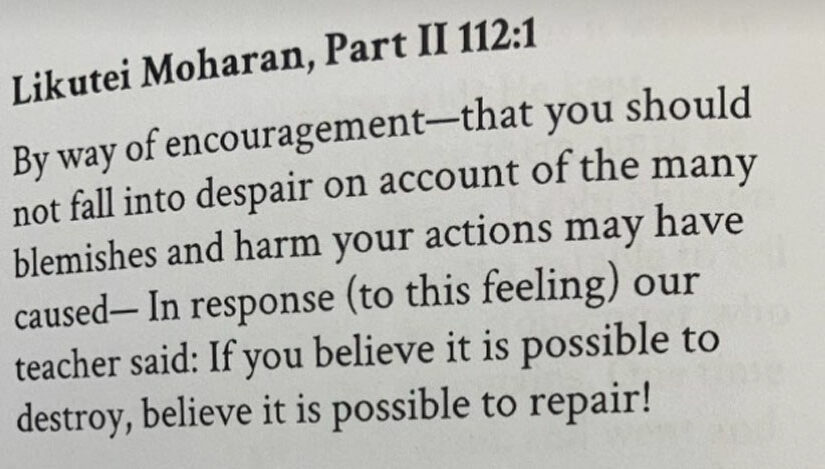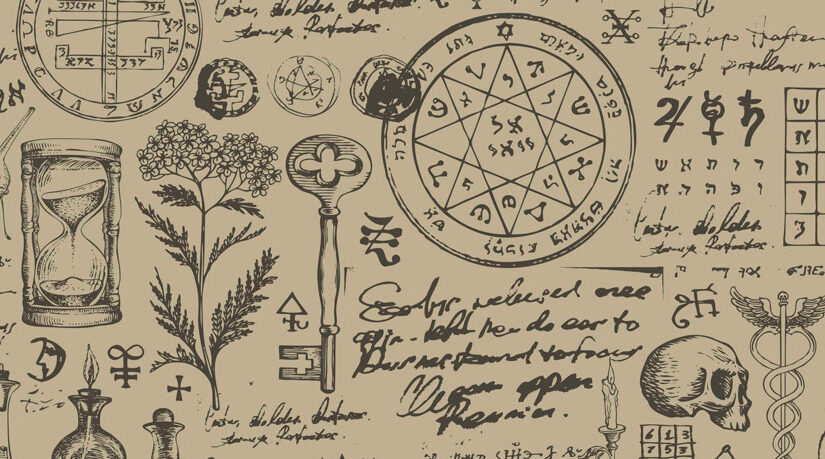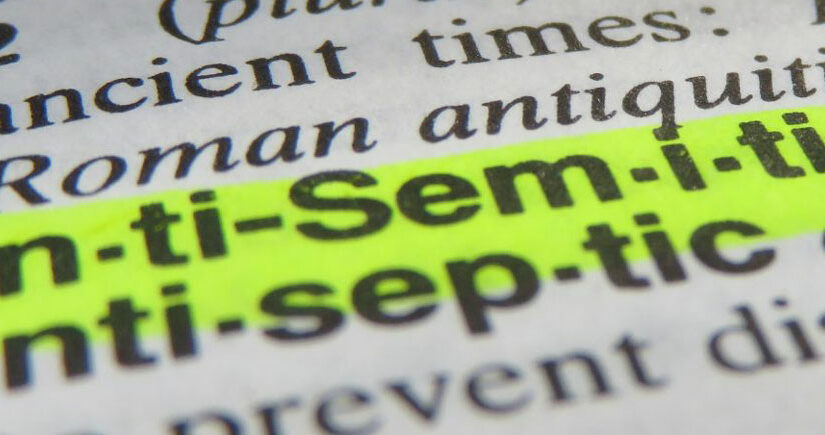
Reparations, Restoration, and Renewal through Jewish Redemptive Narratives (4 sessions)
Program: Open Circle Jewish Learning Texts and Traditions
Instructor: Rabbi-Cantor Michael McCloskey
Day/Time: Tuesdays at 8-9:30pm Eastern
Dates: March 26: April 2, 9*, 16, 2024
Fee: $160 Scholarships available
Location: Online via Zoom
* Instructor may work with the class to select an alternate date for the third session.
Zecher L’tziat Mitzrayim, a remembrance of the exodus from Egypt, is a prominent motif within our prayers that we are obligated to remember all the days of our lives. Yet, perhaps because of discomfort or politics, we often leave out an integral part of the narrative: reparations. Our ancestors took them when they departed Egypt. As the call for reparations for people of color, whose ancestors were enslaved, and who have endured generational institutional theft, predation, violence, and more, has grown louder, Jews need to be a part of this crucial American conversation as well as allies for positive change. What insights does Jewish wisdom bring to this discussion? Join Rabbi Cantor Michael McCloskey, who has studied these primary texts with Rabbi Aryeh Bernstein, author of the “The Torah Case for Reparations” for a stimulating and heart-engaging text study around this complex and important concept.
Hebrew College Open Circle Jewish Learning is for learners of all backgrounds.
Canadian and other registrants from outside of the US: please email Cindy Bernstein to complete your registration. We apologize for the inconvenience.

Radical Judaisms: Paths Not Taken (5 sessions)
Program: Open Circle Jewish Learning Texts and Tradition
Instructor: Aron Wander
Day and Time: Sundays, 10:00 – 11:30 a.m. Eastern
Dates: 2/25, 3/3, 3/10, 3/17, 3/31, 2024
Location: Online via Zoom
Fee: $200 Scholarships available
Register:
A Kabbalistic Communist, an Orthodox anarchist, a Chabad pacifist — these are some of the characters we’ll meet in “Radical Judaisms: Paths Not Taken.” Each of them sought, in their own way, to blend traditional Jewish text, ritual, and law with a commitment to a dramatically different world. The integrations they proposed may be hard to imagine today, but they were once possible, if perhaps unlikely, paths the Jewish people might have taken. Each week, we’ll look at how one of these thinkers (re)interpreted a Jewish holiday in order to see the ways in which they wove together tradition and utopia, Talmud and revolution, halacha and humanism. What light do their proposals shed on the political choices and compromises Jewish communities have made in the past century? Are there elements of their visions that might still be possible to actualize? What new paths for Judaism will we forge?
Hebrew College Open Circle Jewish Learning is for learners of all backgrounds.
Hebrew College Open Circle Jewish Learning classes are for learners of all backgrounds.
Canadian and other registrants from outside of the US: please email Cindy Bernstein to complete your registration. We apologize for the inconvenience.

Creative Practice Studio in a Jewish Paradigm (6 sessions)
Program: Open Circle Jewish Learning Young Adult/Arts and Culture
Instructor: David Mahfouda
Day and Time: Wednesdays, 7-8:30 p.m. Eastern Time
Dates: 3/27; 4/3, 4/10, 4/17, 5/1, 5/8, 2024
Location: Online via Zoom
Fee: $150 Scholarships available
In this six-week Zoom and studio course, we will investigate and reflect on our own relationship with creativity — alongside themes that have accompanied creative practice and the Jewish imagination for millennia. We will read texts that pertain to: the roles that listening, rest, repair, and praise play in spiritual practice and in the creative process; what happens when creations go out of control; the relationship between artistic freedom and spiritual grace; and the poetics of darkness and light. We will also make small, optional weekly experiments in our own lives and artistic practices, to share with the group if we choose. We will draw liberally from Torah, Talmud, and Jewish liturgy, in addition to texts written by Audrey Lorde, Tara Brach, John Berger, Christopher Alexander, and other contemporary authors and artists.
Hebrew College Open Circle Jewish Learning classes are for learners of all backgrounds.
Canadian and other registrants from outside of the US: please email Cindy Bernstein to complete your registration. We apologize for the inconvenience.

The Ethics of War and the Pursuit of Peace in Jewish Law and Thought – Online via Zoom
Program: Hebrew College Me’ah Select
Instructor: Rabbi Benjamin Samuels (Read Bio)
Dates: 10 Mondays, Winter/Spring 2024: 2/5, 2/12, 2/26, 3/4, 3/11, 3/18, 3/25, 4/1, 4/8 & 4/15
Time: 9:30 – 11:30 a.m.
Course fee: $450, financial aid is available
Location: Zoom
Hosted by: Temple Beth Elohim
Jews say hello and goodbye with the word “Shalom – Peace.” Our ultimate prayers (think “Sim Shalom” or the last line of Kaddish, “Oseh Shalom Bimromav”) are likewise blessings for peace. And yet, in the unredeemed world of the Jewish past and present, Jews have had to contend with war, terrorism, and violent persecution. How does a people whose opening words and most ardent prayers are for peace defend themselves from persecution, deal with terrorism, and wage war? Jewish tradition has a rich tradition of considering and debating the ethics of self-defense and the morality of war. These existential issues have become particularly pertinent for the Modern State of Israel in its 75 years of terror-and-war-filled history. In this course, we will study Jewish ethics of war and the pursuit of peace from biblical times to the present in Jewish law and thought. The method of our text-based learning will be to focus on ethical dilemmas born of past Jewish historical circumstances, learn related Jewish views from biblical and rabbinic literature, along with medieval and modern Jewish commentary, and robustly and respectfully discuss their moral applications and historical outcomes.
Note: This course will also be offered In-Person at Temple Beth Elohim in Wellesley on Wednesday mornings, 9:30-11:30 a.m. on the following dates: 2/7, 2/14, 2/28, 3/6, 3/13, 3/20, 3/27, 4/3, 4/10 & 4/17. Click here to register for this In-Person class.
For more information, contact meah@hebrewcollege.edu

The Newest Forms of
the Oldest Hatred:
Understanding Contemporary Antisemitism
Program: Hebrew College Me’ah Select
Instructor: Dr. Jacob Meskin (Read Bio)
Dates: 6 Tuesdays -1/23, 1/30, 2/6, 2/13, 2/20 & 2/27
Time: 10 a.m. – 12 p.m.
Course fee: $270, financial aid is available
Location: Zoom
Hosted by: Kerem Shalom, Concord
A number of dangerous forms of antisemitism are poisoning our world. Where did they come from? How did they arise? And based on that, what can we do to counter them?
In this course we will first explore the ancient and medieval historical contexts of Christian and Islamic anti-Judaism, out of which modern forms of antisemitism have arisen. We will then turn to the nineteenth century, which saw decisive reinterpretations of these earlier materials in both Christian and Islamic theological circles.
We will however spend the bulk of our time analyzing precisely how subsequent movements in the twentieth and twenty-first centuries helped to spawn the notorious and vicious manifestations of antisemitism we encounter today. A short list of these manifestations would include various forms of contemporary Islamic antisemitism; total denial of legitimacy to Zionism and thus of the right of Jews to have a majority nation state of their own; radical right-wing and radical left-wing hatred of Jews and Judaism; different forms of online antisemitism, and the horrifying absolute enshrinement of antisemitism as dogmatic truth among academics and on college campuses, particularly though not exclusively in America.
We will conclude by studying groups who are, happily, opposed to these terrible and dangerous slanders, and by pondering some proposed strategies for responding to them.

From Buffalo to Jerusalem:
An In-Depth Look at
the History of American Zionism
Online via Zoom
Program: Hebrew College Me’ah Select
Instructor: Rabbi Dan Judson (Read Bio)
Dates: 7 Mondays, Winter/Spring 2024: 1/29, 2/5, 2/12, 2/26, 3/4, 3/11 & 3/18
Time: 7:30-9 p.m.
Course fee: $315, financial aid is available
Location: Zoom
Hosted by: Hebrew College
In evaluating the complicated and varied responses the American Jewish community had to the terrorist attack by Hamas and subsequent Israeli actions, it is worth taking a historical step back and tracing the history of American Zionism. Beginning with a look at 19th century American views of the Holy Land and moving through to the present day, we will examine the Jewish community’s sometimes fractious, sometimes unified approach to Zionism. With the aid of new research and books like Walter Russel Mead’s The Arc of a Covenant: The United States, Israel and the Fate of the Jewish People, we will be paying particular attention to the way that non-Jewish Americans have been as essential to the unfolding story of American Zionism as the Jewish community.
This course is first and foremost a history course, we will examine Louis Brandeis’s centrality to the Zionist movement, the first time America goes on record with support for Zionism, the politics around Truman’s recognition of Israel, and all manner of episodes relating to the development of American Zionism. The course, however, is primarily not going to be an opportunity to discuss the current situation, while the present day will never be far from our minds (how could it be), this course is for people who want a background in how America came to this place.
Note: This course will also be offered In-Person at Hebrew College on Monday mornings, 9:30-11 a.m. on the following dates: 3/25, 4/1, 4/8, 4/15, 5/6, 5/13 & 5/20. Click here to register for this In-Person class.
For more information, contact meah@hebrewcollege.edu







